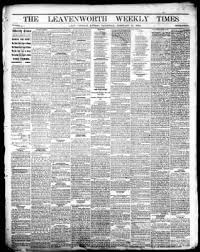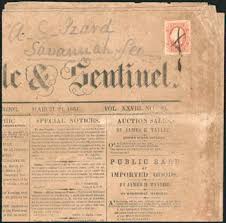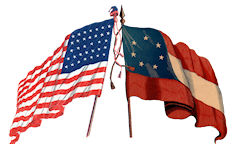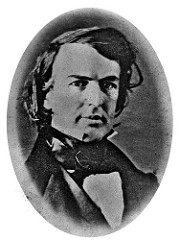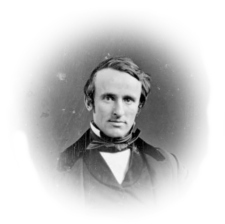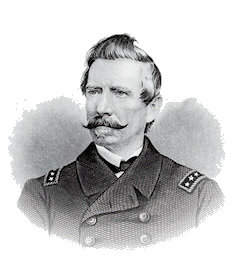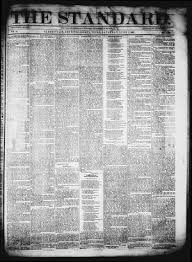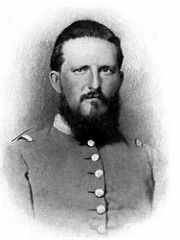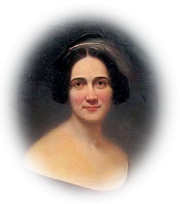August 3.–At Baltimore, Md., this morning, Sergeants Wallis and Cook, with Officer James Pryor, of the Middle District Police, went on board the steamer George Weems, at her wharf foot of Frederick street, and on her leaving for the usual trip to various landing places on the Patuxent River, proceeded in her as far as Fort McHenry wharf, where they directed Captain Weems to stop. A search of the steamer was here made, resulting in the discovery of concealed arms and ammunition in various out-of-the-way places in the hold. Immediately under the upper deck, between the lower deck and the skylight, were found 200 new Colt’s patent revolvers, done up singly in paper. In the aft part of the hold the officers found a barrel in which rubbish had been placed for several months. Concealed in the rubbish was a valise filled with boxes, each containing 250 rifle percussion caps. There was also found in the hold, separate from the other freight, a halfbarrel of sulphurated quinine, contained in bottles and packages. On the discovery of these articles General Dix directed that the steamer should be detained for a more minute examination of the freight. He also directed that the steamer Planter should be got ready to convey the passengers to their place of destination.–Captain Weems disavowed any knowledge of the contraband articles.–Baltimore American, August 3.
–Governor Gamble, of Missouri, issued a proclamation to the citizens of that State, in which he calls upon all those who are enrolled in the State militia now in arms against the Federal Government, who were called out by his predecessor, Jackson, to return to their homes, promising them protection if they do so. He appeals to the sheriffs of counties and other magistrates, to exercise all the authority vested in them by law, in arresting and punishing every one who may break the peace, molest his fellow-citizens, or retain arms, the property of the Federal Government. He also notifies all those citizens of other States, who may be in arms within the boundaries of Missouri, (in the rebel ranks,) to withdraw to their own States, as Missouri does not need nor desire their presence. After the issue of this proclamation, Governor Gamble received a despatch from the War Department, stating his promise of protection to all those who may lay down their arms would be sustained by the Government. In several counties of Northern Missouri committees of safety have been appointed to suppress rebellion, with the assurance that if they cannot effect that purpose, the military power will be used to its utmost extent.–(Doc. 156.)
–The Charleston Mercury of to-day, says: “We have been provoked beyond endurance by reading the most complacent and gratulatory comments of certain Virginia papers on the charming charity and benevolence of certain citizens and officials of that State toward the invaders of their soil, plunderers of their estates, destroyers of their homes and firesides, and polluters of their women. We demand that every prisoner in Richmond be incarcerated and put in irons. Justice, humanity, and civilization alike cry aloud for ‘stern retribution.’ ”
–Senator Kennedy, of Maryland, in the Senate, at Washington, presented a memorial from the Legislature of that State, denouncing the National Government in unmeasured terms, and protesting against its action in imprisoning Ross Winans and others suspected of conspiracy. Its reception was objected to by several members on account of its disrespectful tone, but it was finally admitted and ordered to be printed, on the ground that it would not do to deny the right of petition.–N. Y.Times, August 5.
–Beriah Magoffin, Governor of Kentucky, issued a proclamation commanding all persons having arms belonging to the State, that have been unlawfully seized, to immediately deliver them up, that they may be returned to the State Arsenal, at Frankfort.–(Doc. 157.)
–The Senate of the United States confirmed numerous army appointments. Among them are Major-Generals McClellan, Fremont, Dix, and Banks; and Brigadier-Generals Hooker, Curtis, McCall, Sherman, Lander, Kelly, Kearney, Pope, Heintzelman, Porter, Stone, Reynolds, Hunter, Franklin, Rosecrans, Buell, Mansfield, McDowell, and Meigs.–Philadelphia Inquirer, August 5.
–The Twenty-ninth Regiment of Pennsylvania Volunteers, under the command of Colonel John K. Murphy, left Hestonville, West Philadelphia, for the seat of war.–Philadelphia Press, August 8.
–Mrs. Lincoln having kindly consented to receive and distribute the havelocks made by the ladies of Katonah and Bedford, Westchester, N. Y., a case was despatched to-day from the Jay homestead to the executive mansion by Pillion’s and Adams’s express, containing 1,300 havelocks, of which 1,165 were made by the ladies of Katonah and its vicinity, and 135 by those of Bedford.–N. Y. World, August 6.
–A letter from Isham G. Harris, Governor of Tennessee, to the editors of the Memphis Avalanche, on the military power of that State, was published.–(Doc. 158.)
–The First Regiment of New Hampshire State Militia, under the command of Colonel Mason W. Tappan, passed through Philadelphia on their return from the seat of war. This regiment composed part of the command of Col. Stone, and marched to Harper’s Ferry, Va. They have been principally on guard duty, and had a skirmish with the rebels at Harper’s Ferry. The men have performed marches on foot to the extent of one hundred and sixty miles since they left Washington. The regiment has twenty ladies with them. They return numerically as strong as when they left, except six of the men, who were taken prisoners.–Philadelphia Bulletin, August 5.
–The House of Representatives, at Washington, passed, with a slight amendment, the Confiscation Bill. The amendment is, that slaves in the military or naval service, or working in the intrenchments of the rebels, will be confiscated.–(Doc. 159.)
–The Sixth Regiment of Wisconsin Volunteers, commanded by Colonel L. Cutler, and the Twenty-first Regiment of Indiana Volunteers, under the command of Colonel J. W. McMillan, arrived at Baltimore, Md.–Baltimore American, August 5.
–The N. Y. Journal of Commerce suggests as “a way by which our troubles can be settled without more bloodshed”–1, an armistice ; 2, delegates from every State, North and South, to meet at Louisville; 3, the delegates to agree upon a modified Constitution; or 4, a peaceable separation.
One of its plans for reconstruction is to have a Northern and Southern section in each House of Congress, and no bill to become a law until agreed to by a majority on both sides!–(Doc. 160.)
–As engagement took place at Messila, N. M., between a body of Federal troops and seven hundred Confederates, under command of Capt. Baylor. Capt. McNeely and Lieutenant Brooks, of thr Federal army, were wounded in the engagement, and twelve of the Confederates killed. Night coming on put an end to the engagement.–Baltimore American, August 21.
–The secret expedition from Fortress Monroe to the eastern shore of the Chesapeake Bar, under the command of Captain Crosby, U. S. A, returned to Old Point Comfort. The object of the expedition was to search for vessels engaged in illegal trade, and to reconnoitre the coast for defences erected by the rebels.– (Doc. 161.)
——-
Late addition to Volume 3:
August 3.–Lient.-Col. Baylor, commanding the rebel forces in Arizona, has issued a proclamation taking possession of the Territory in the name and on behalf of the Confederate States, declaring all offices, civil and military, vacant and no longer existing, and making provision for the government of the Territory until such time as the Confederate Congress may otherwise provide. Col. Baylor, as Governor of the Territory, has also appointed a Secretary of the Territory, Attorney-General, and other officers. –Lieut. R. H. Brewer, late of the first regiment of the United States Dragoons, has arrived in New Orleans, and informs the Picayune that on the 5th ultimo, Gen. A. S. Johnston, who arrived from California, was at Picach, about five miles north of Mesilla, in command of the Confederate forces, which command, tendered by Lieut.-Col. Baylor, the General had accepted. The Confederate forces numbered about five hundred men, and had four pieces of artillery. They were awaiting the approach of four companies of Federal troops (two companies of dragoons and two companies of infantry) under command of Lieut. Moore. Forts Breckinridge and Buchanan had been destroyed.–Mesilla Times, August 3.
